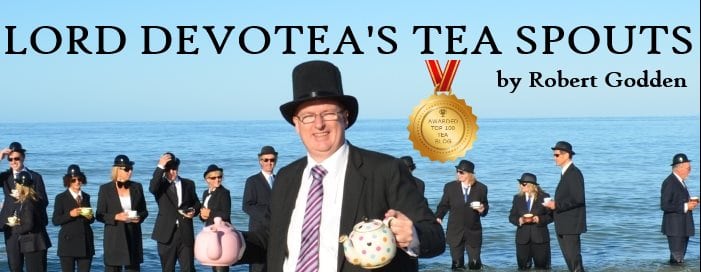I read a lot, when I can. And I often read fiction. And I often read non-fiction. And often, that’s history.
When it comes to history, generally, I like Stone Age through to about 1799.
Why 1799? Well I was born in 1965, so anything that starts with a 19 or even an 18 just sounds too… boring. Not different enough to be interesting, but just to be kind of stuffy and just so… last centuryish. I was born the year Winston Churchill died.
Now, I realise that people who lived through a World War or two, or the Flu pandemic or the Irish Potato Famine or the Great Depression might have found their life and times quite a bit too damned interesting for their liking, but it’s never done much for me.
Except for Art Deco teapots, of course.
Anyhow, I picked up a swag of books without any clear strategy at the library, about 8 of them, and went back for a second after loving one author. So not by design, but just by happenstance, I read these books in this order, with a documentary in the midst:
- The Strangler Vine, a novel by MJ Carter, set in India in the mid 1830s
- Dirty Bertie: An English King Made in France by Stephen Clarke. The ONLY reason I picked this non-fiction work about the life of Edward VII is because the front cover proudly boasted “by the author of 1000 Years Of Annoying The French”.
- The Infidel Stain, another novel by MJ Carter, set in 1842, and the characters from The Strangler Vine have reconnected in London
- A documentary about Queen Victoria’s Sons came on TV, and as the aforementioned Bertie was one of them we watched it. By a staggering coincidence, the main person interviewed was the historian Miranda Carter, who happens to be exactly the same person as the novelist MJ Carter mentioned above.
- Butter Cheap and Penny Loaves: England in 1846 in which historian Stephen Bates argues that the events of 1846 shaped the destiny of England and six other countries including the USA and Australia.
So what had happened, in effect, was that I had jumped headlong into Victorian England, circa 1846. I was immersed in Chartists and Whigs and Tories. There were railways happening, great engineering feats. There was desperate poverty and ostentatious wealth – but then, some things never change. There was Charles Dickens. It was the best of times, it was the worst of times, arguably. The second is easier to prove.
The Queen, Victoria, is on record of being terribly anxious to avoid being mad, like all of her forebears in the House of Hannover. That’s a shame, and she was either the maddest of all of them, or just plain appalling. Her Prince Consort, Albert who believed in impeccable manners right up until he rudely died a decade or so later, was a social reformer in public and in private the sort of parent who should have had his children removed.
The delightful Royals family didn’t just run their unfortunate family like a squad of Prussian Fusiliers, they pretty well determined that society should run along their very proper lines. Which is a shame, because that just led to a veneer of respectability and caused a lot of harm.
I’ll pause and wait for you to make the obvious comment: “Where’s the tea in all this?”
Well, one of the main protagonists, Lord John Russell who took over as Prime Minister from Robert Peel in mid-1846 and whose first decision was that the fact that the entirety of Ireland was starving to death was really no big deal, was of the same family as Anna Russell, the lady who helped popularise Afternoon tea and is often mistakenly credited with inventing it. She married the grandson of Lord John Russell’s grandfather. But although this was an appalling decision that changed the world, it’s only very slightly tea related.
But here’s my tea point: Consider the timing: Indian tea was first commercially planted in the mid 1830s. The landing of the first shipment from Assam in 1839 and it’s purchase by Captain Pidding (as described in that classic book The Infusiast, available on amazon) was right smack in this time.
All the tea histories tell us how important this commodity was, at this time.
And yet, does it get a mention? A couple of cups are consumed in the novels, and afternoon tea gets a passing mention in Butter Cheap and Penny Loaves on page 305.
Maybe we’ve got it wrong. Maybe England never was the tea-obsessed culture we think it was. Sure, it was pretty big during the times of high taxation and smuggling, but then forbidden fruit always tastes sweeter.
Or maybe modern historians, raised since the once-proud British cup of quality loose leaf tea was subverted by the shameful slop of a cup of PG Tips teab*g tea, have just missed the point.
I’d recommend all of the books I’ve mentioned. But, just to restore some balance, make sure you imbibe each book with a nice cup of tea on the side.


An interesting theory.